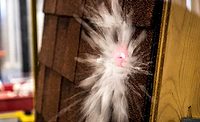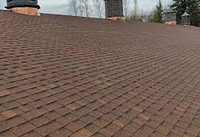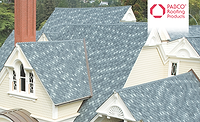UL to Begin Testing Asphalt Shingles Using IBHS Impact Resistance Test Protocols

IBHS conducting hail testing with manufactured hailstones that replicate real hail. Photo courtesy of IHBS.
RICHBURG, S.C. — The Insurance Institute for Business & Home Safety (IBHS) and UL today announced plans to expand their relationship to increase manufacturer access to testing to the IBHS Impact Resistance Test Protocol for Asphalt Shingles.
In June 2019, IBHS released its Impact Resistance Test Protocol for Asphalt Shingles, a new test standard that mimics the way hail attacks a roof. It utilizes hailstones manufactured to be consistent with those that occur naturally, a notable shift from the traditional steel ball test, to better understand and identify ways to reduce the damage hail causes to asphalt shingle roofs.
The growing partnership between IBHS and UL will help meet increasing demand for testing as the roofing industry continues to improve asphalt shingle performance. UL has added the capacity for research and development testing of asphalt shingles using the IBHS protocol to the organization’s broad standardized testing program and will begin serving roofing manufacturers by testing new asphalt shingles to the IBHS protocol in support of their product development activities.
“Translating top-tier science into action is at the core of IBHS’s mission. Years of field and lab research made the IBHS test protocol possible, yet within just a few months of its release it was helping to advance the market with manufacturers quickly taking steps to improve poorer performing products and keen to have updated products put to our test,” said Roy Wright, president and CEO of IBHS. “Our new agreement with UL further operationalizes the science we’ve dedicated years to understanding.”
Under the agreement, UL will also test impact-resistant labeled products available in the marketplace on behalf of IBHS, as the nonprofit continues to fulfill its commitment to refresh its Roof Shingle Hail Impact Ratings periodically and test and add new products to the ratings as they are introduced to the market.
“Bringing together IBHS research with UL’s greater capacity for testing will allow us to more rapidly expand the reach of the Impact Resistance Test Protocol, making it possible for shingle manufacturers to better utilize the pioneering science captured in this program to improve products, especially during the research and development phase,” said IBHS Managing Director of Research Dr. Tanya Brown-Giammanco. “IBHS and UL have a longstanding relationship dating back to 2015, which we are excited to grow as both organizations strive to improve shingle performance.”
To develop the Impact Resistance Test Protocol, IBHS researchers gathered, weighed, measured, and 3-D scanned thousands of hailstones in the field to garner needed data on the physical characteristics of hail, and then successfully replicated those characteristics in large volumes to manufacture realistic laboratory hailstones. The test protocol informs IBHS’s shingle performance ratings that differentiate product performance across three damage modes. The modes include dents, known as deformations; tears, known as breaches; and granule loss. Leveraging UL’s capacity to run exploratory tests for manufacturers and tests for IBHS to refresh public ratings will enable IBHS to remain focused on ongoing and new research to further identify ways to reduce avoidable loss from severe weather.
"We have a rich history within the roofing industry and have been evaluating residential roofing shingles for the perils of fire for over 60 years and wind performance for over 25 years," said Al Ramirez, UL’s insurance and risk mitigation project manager. "Our long-standing involvement with impact resistance testing and certification for residential roofing is a natural progression of in-depth industry knowledge and expertise between UL and IBHS. Now the industry will be able to work directly with UL to conduct tests on certified asphalt shingles in accordance with the new IBHS protocol for product research and development needs."
UL expects to make the IBHS test protocol available for manufacturers’ research and development testing immediately. IBHS will continue to pioneer hail science to improve building component performance.
“Shingle manufacturers are eager to improve products before they go to market, which ultimately provides homeowners better protection during severe weather and helps them avoid the hassle and expense of repeated shingle replacement," Brown-Giammanco said.
Learn more about the IBHS Impact Resistance Test Protocol for Asphalt Shingles and explore the performance scorecard at ibhs.org/impactratings.
Looking for a reprint of this article?
From high-res PDFs to custom plaques, order your copy today!





